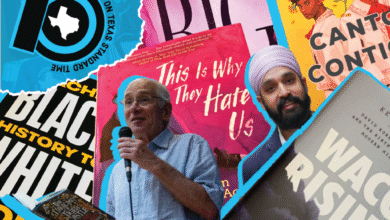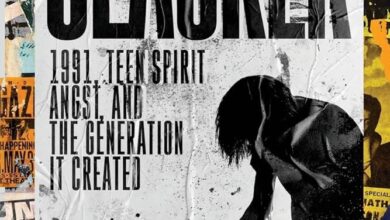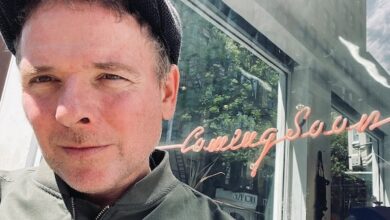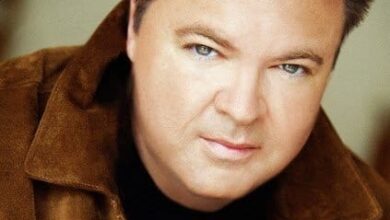Innovation Comes From Finding Creative Solutions Within Existing Frameworks: Interview with New York Times Bestselling Author Evelyn Skye
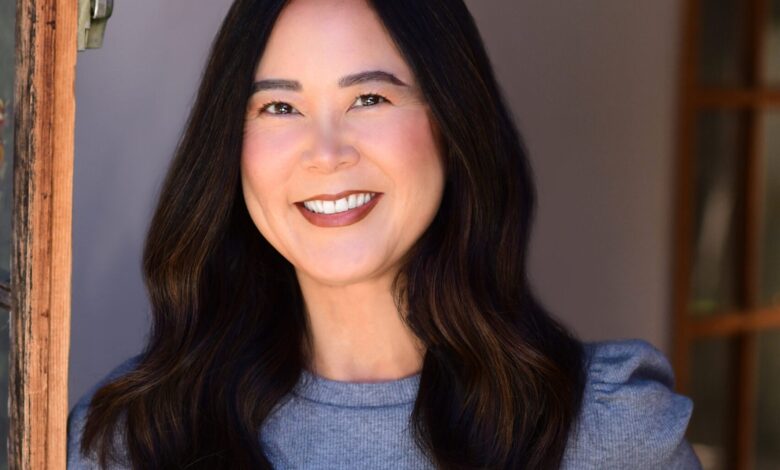
I recently went one-on-one with New York Times bestselling author Evelyn Skye. Evelyn is the author of the new novel The Incredible Kindness of Paper.
Adam: Thanks again for taking the time to share your advice. First things first, though, I am sure readers would love to learn more about you. How did you get here? What experiences, failures, setbacks, or challenges have been most instrumental to your growth?
Evelyn: My path has been unconventional. I studied Russian literature at Stanford, then went to Harvard Law School and spent six years as a mergers and acquisitions attorney at two big international firms, Latham & Watkins and Weil Gotshal, where I helped orchestrate everything from intellectual property licenses to billion-dollar deals. But the pivotal moment for me came during maternity leave with my daughter when I fell back in love with reading and decided to try writing again. What I discovered was that I had never loved any work as much as I loved storytelling.
What many people don’t realize about creative careers, though, is that you don’t get the same feedback loop you have in an office setting. There’s no annual review or immediate validation that your project is going well. Instead, you have to operate under what I call “optimistic delusion,” believing that what you’re creating is worthwhile despite years of working without knowing if you’ll make it. I wrote eight complete manuscripts before getting my first book deal on the ninth.
The key was combining humility with an absolute dedication to improving my craft. When facing rejection, instead of thinking someone didn’t understand my genius, I took it as a lesson that I had more to learn. That mindset, paired with the intense work ethic I developed in Big Law, has been instrumental to building a sustainable creative career that’s now produced ten published books (not counting the eight unpublished manuscripts!)
Adam: What is your creative process? And how can anyone unlock their creativity?
Evelyn: I’m a firm believer in Cal Newport’s concept of deep work. I can accomplish more in three to four hours of distraction-free, focused work than most people do in eight hours of interrupted effort. When I’m actively writing a new draft, I can produce a book a year working just those few intense hours daily because I’m sitting in complete flow.
The key is retraining your brain to resist the constant dings of notifications and other digital interruptions. When you stop letting your attention jump between tasks, your neurons can fire at a much more intense level. This applies to any creative or strategic work, whether you’re writing a novel, developing a business strategy, or solving complex problems for a client.
For anyone wanting to unlock creativity, start by protecting your mental space. Turn off the badges and notifications on your phone. Create boundaries around your most important work, even if that means taping a handwritten note on your door that says “DO NOT DISTURB.”
Creativity requires both the freedom to explore ideas and the discipline to execute them. You can’t have breakthrough thinking if your mind is constantly fragmented.
Adam: How do you hold yourself accountable and ensure you complete projects you start? What are your best tips on the topics of goal setting and accountability?
Evelyn: My training ground was six years in Big Law, where client demands are intense and deadlines are non-negotiable. That experience taught me to operate under pressure and meet commitments even when I’m the only one holding myself accountable.
Now that I’m self-employed, I have to create my own structure. Yes, I have contract deadlines for books, but those are long-term. The daily discipline comes from within. I set productivity expectations for myself (e.g., writing a chapter a day) and treat them as seriously as I would any client deadline.
The key is understanding that accountability isn’t just about external consequences; it’s about integrity with yourself. If you say you’re going to do something, do it. Start with small commitments and build that muscle. Whether you’re running a team or running a creative endeavor, people need to trust that you’ll follow through. That trust starts with how you treat your commitments to yourself.
Adam: What are the keys to successful storytelling?
Evelyn: The most compelling stories tap into universal human experiences. If you can connect with an emotion or situation that many people have felt, you immediately have their attention because they know you understand them.
In my latest book, The Incredible Kindness of Paper, the protagonist starts folding yellow origami roses with encouraging messages inside them, after losing her job. That story of feeling lost and finding purpose through helping others resonates because we’ve all faced moments of uncertainty and discovered meaning in unexpected places. The universal themes—resilience, connection, the power of small gestures—make the story accessible to anyone, regardless of their background.
The same principle applies in business. Don’t just present data; tell the story of what that data means for real people. Connect your vision to experiences your audience already understands. That emotional bridge allows you to communicate with people you might never have thought possible to reach.
Adam: What are your best tips on the topic of communication? How can anyone become a more effective communicator?
Evelyn: One of the most important skills I’ve developed through my podcast, CREATIVE INSPIRED HAPPY with Evelyn Skye, is knowing when the spotlight should be on myself versus when it should be on someone else. I’ve been told I’m a gracious interviewer because I not only do thorough research on my guests, but I also listen to them carefully and adapt my questions in ways that let my guests shine.
This applies everywhere, from giving performance reviews to presenting at a conference. Effective communication isn’t just about what you say; it’s about creating space for others to be heard. Listen to what people actually need, not just what you want to tell them. Short Q&A sessions are a great tool to enable this.
I also believe in being conversational rather than overly formal. When I speak at events, I prefer having an outline rather than a rigid script. Being relaxed and authentic allows you to connect more deeply with your audience. People want to follow leaders who feel human and approachable, not distant and untouchable.
Adam: What do you believe are the defining qualities of an effective leader? How can leaders and aspiring leaders take their leadership skills to the next level?
Evelyn: Smart leaders know how much of themselves to share and how much to keep private. I’m very accessible to my 24,000+ Substack subscribers, but I maintain clear boundaries about what parts of my life I share publicly. This is especially important in our oversharing digital age; people will take as much as you give them, so you need to know where you stop.
Effective leaders also understand that opening yourself up as a human being doesn’t diminish your authority; it enhances it. When you’re genuine and approachable, your team wants to listen to you more and work harder for your shared goals. In my book marketing, I focus on building authentic community rather than just selling. For The Incredible Kindness of Paper, I created yellow rose pop-up cards and mailed them to influencers with notes about passing it along to someone who needed encouragement or a kind word, without asking them to post about my book. Some shared it on social media, but others just created goodwill and community, which is often more valuable than direct promotion.
Adam: What are your three best tips applicable to entrepreneurs, executives, and civic leaders?
Evelyn: First, be prepared for failure and the discomfort of change. Go in with high hopes, but understand that the road will be longer than you expect. Resilience isn’t about avoiding setbacks; it’s about learning from them and continuing forward.
Second, think outside the box but within the rules. Innovation comes from finding creative solutions within existing frameworks. My marketing approaches work because they’re unexpected but authentic to my values. They reflect the same philosophy as my book: that individuals have more power than they realize to create positive change through thoughtful action.
Third, always ask for feedback and remain humble. Whether you’re in a corporate setting or running your own business, continuously seek ways to improve. Approach feedback with confidence, letting people know you’re striving for excellence, not coming from insecurity. The leaders who last are those who never stop learning.
Adam: What are your best tips for anyone interested in writing a book?
Evelyn: Read extensively in the genre you want to write, then write as much as you can. You’re not as good as you think you are in the beginning. Almost no one is. It’s only by holding yourself to high standards, accepting feedback, and being willing to throw away manuscripts and start over that you’ll reach your potential.
I weathered hundreds of rejections from agents and publishers before I finally landed my first book deal. But each rejection taught me something crucial about storytelling and the market. The writers who succeed are those who view rejection as education rather than defeat.
Most importantly, understand that this is a long-term game. Build your skills systematically, just like you would in any other profession. The instant success stories you hear about are rare exceptions, not the norm.
Adam: What is the single best piece of advice you have ever received?
Evelyn: Smile. My mother taught me this by pointing out a cashier at our local grocery store who smiled at every customer. It’s such an easy way to put someone at ease, create connection, and show generosity of spirit. This philosophy shows up in The Incredible Kindness of Paper, too: the idea that small gestures, like a genuine smile or an encouraging note, have power we often underestimate. These simple acts of kindness create ripple effects that can transform someone’s entire day, and ultimately, that’s how real change happens in the world.
Adam: Is there anything else you would like to share?
Evelyn: What I hope people take from both this interview and my book is that individuals are far more powerful than they believe. The Incredible Kindness of Paper tells the story of a woman who loses her job and starts folding origami roses with encouraging messages, leaving them around New York City for strangers to find, because sometimes a random act of kindness can change the trajectory of a life.
This is a core belief of mine, and I think that everything you do should reflect your genuine self and values. Authenticity creates the foundation for real influence and lasting impact. We’re all more connected than we realize, and when we lead with kindness and intention, we contribute to making the world a little bit better, one interaction at a time.
Thank you for this interview, Adam. It’s been delightful.
Source link

